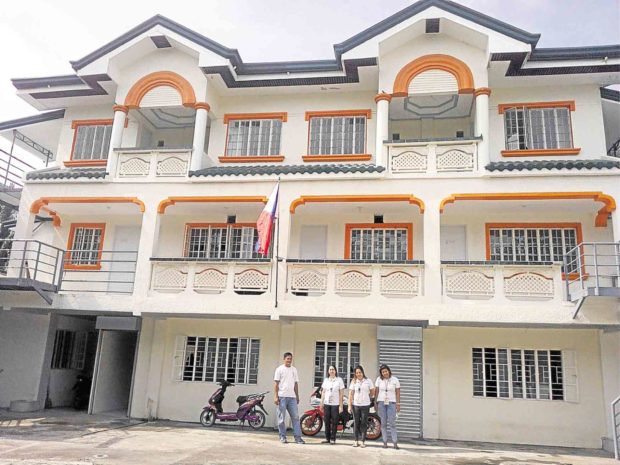Buhay Pagbabago offer drug dependents a second chance

REDEMPTION Drug users rebuild their lives in this house that belonged to a former starlet. —CARMELA REYES-ESTROPE
In Bulacan province, one can really say that change has come — at least for former drug dependents who have kicked their habit and now find themselves gainfully employed.
Thanks to the province’s 25 drug reform centers aptly called Bahay Pagbabago, 2,086 patients have been given a second chance, with 743 of them now working in jobs that include serving as cooks at the center itself.
Mary Jane Amela, 38, Jennilyn Yambao, 34, and Mary Grace Lor, 34, staff the kitchen at Sta. Maria town’s Bahay Pagbabago.
Amela, a former businesswoman who got hooked on drugs, said she and her fellow cooks also plant green chili that they turn into chili paste that are then sold in the local market. The group said that their renewed entrepreneurial ambitions testify to the success of the province’s drug treatment programs.
Jed Marco, 44, who works as a utility worker at Bahay Pagbabago, used to consume three grams of “shabu” every day. He’s now a lot stockier than when he surrendered in February.
Article continues after this advertisement“I used to take drugs 24 hours a day, seven days a week,” he recalled. But he got so scared about being killed that he turned himself in. “Now I am so proud to have licked the addiction and to be working for the center,” he said.
Article continues after this advertisementFellow worker Gilbert San Pedro, 37, frequented the Magalang town rehab center in Pampanga but couldn’t kick the habit until he underwent the program in Guiguinto town.
He said it was the combination of moral and religious lessons, coupled with the discipline of waking early each day to work in a farm that did the trick.
Supt. Rainel Valones, Sta. Maria police chief, manages Bahay Pagbabago that was built and operated through a P6.5-million allocation from the town government.
Located at the Cityland subdivision in Barangay Pulong Buhangin, the center has a farm where patients and reformed addicts can plant crops.